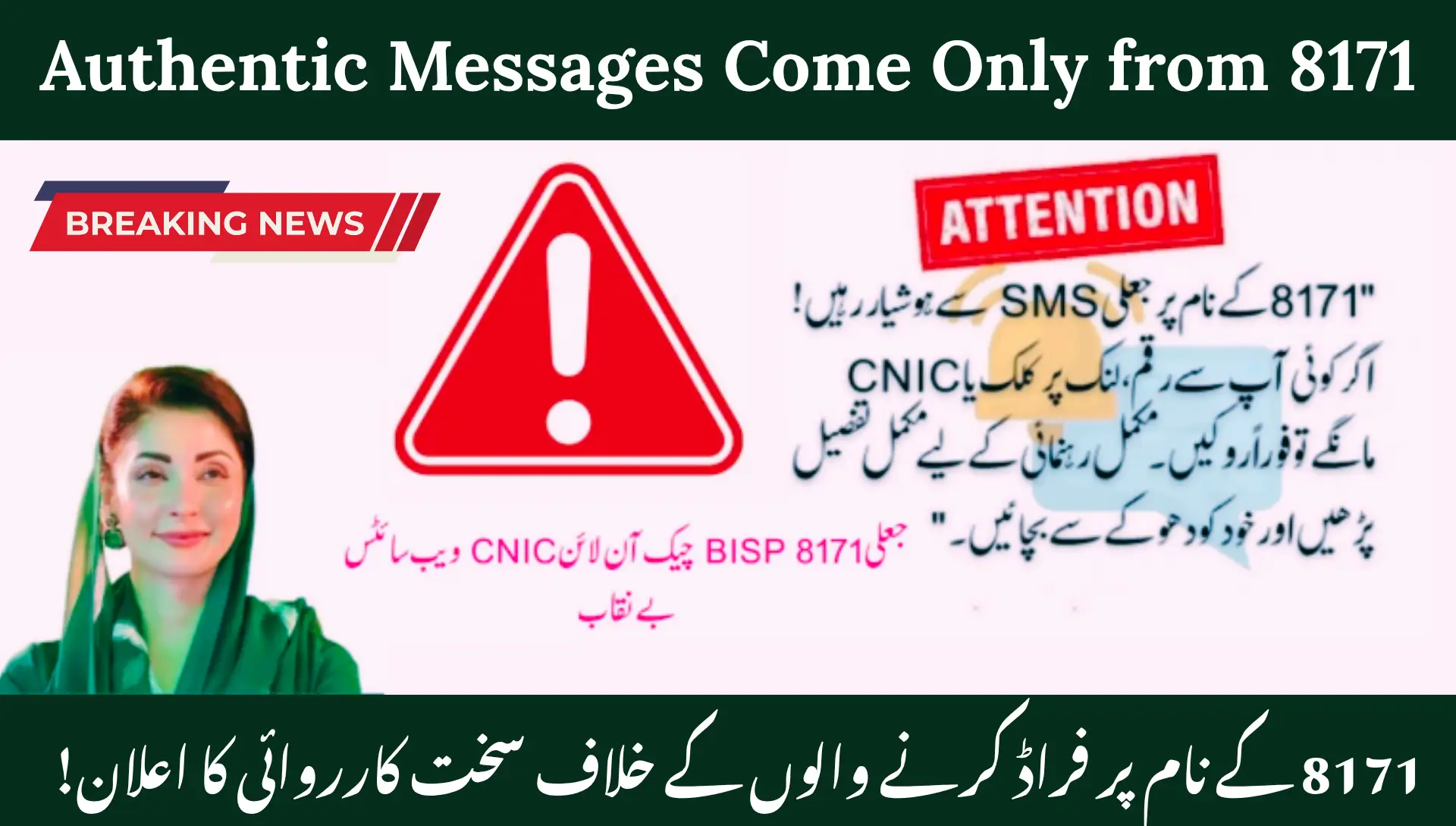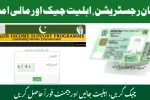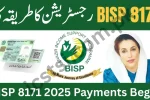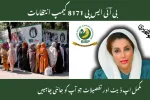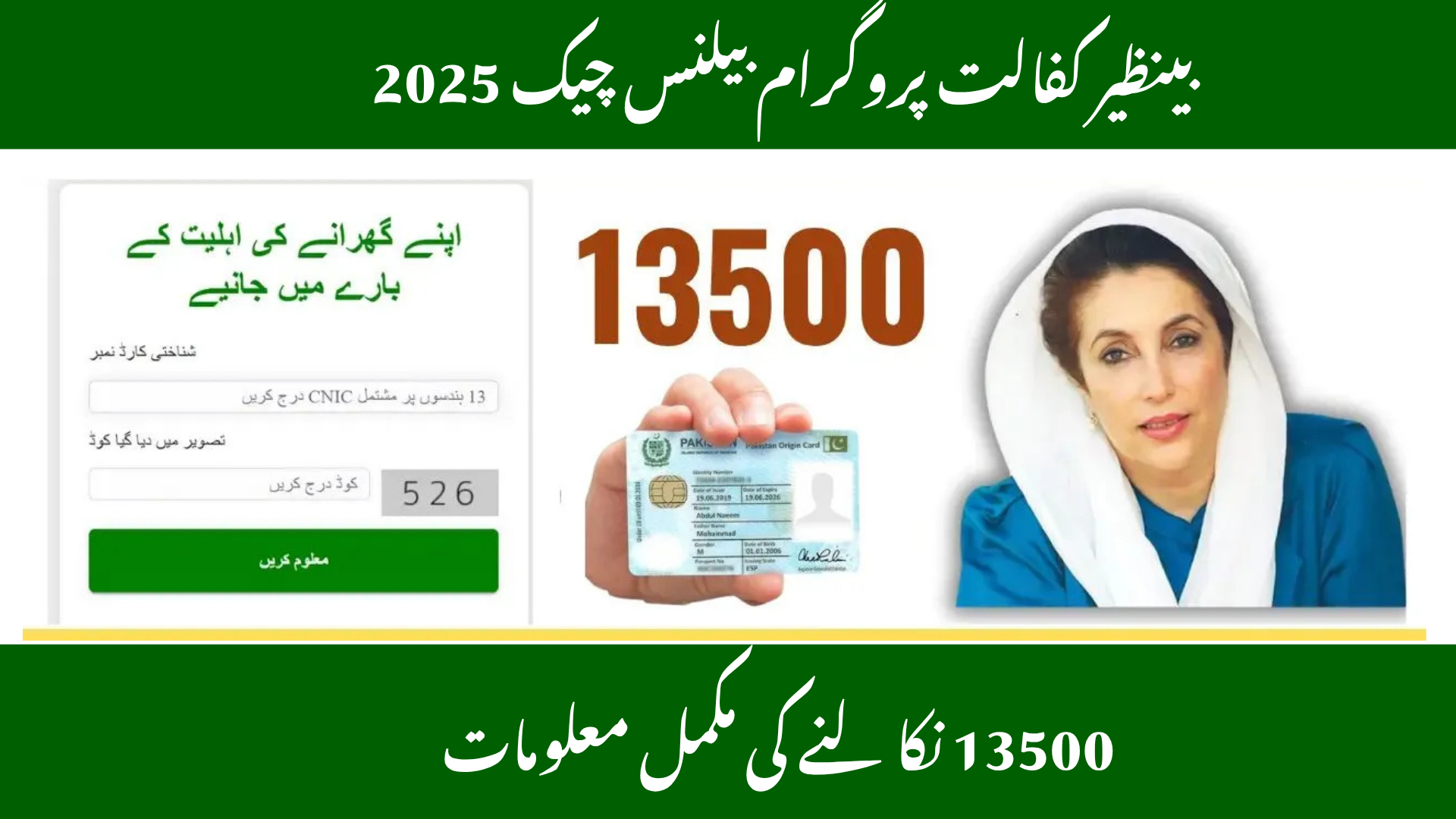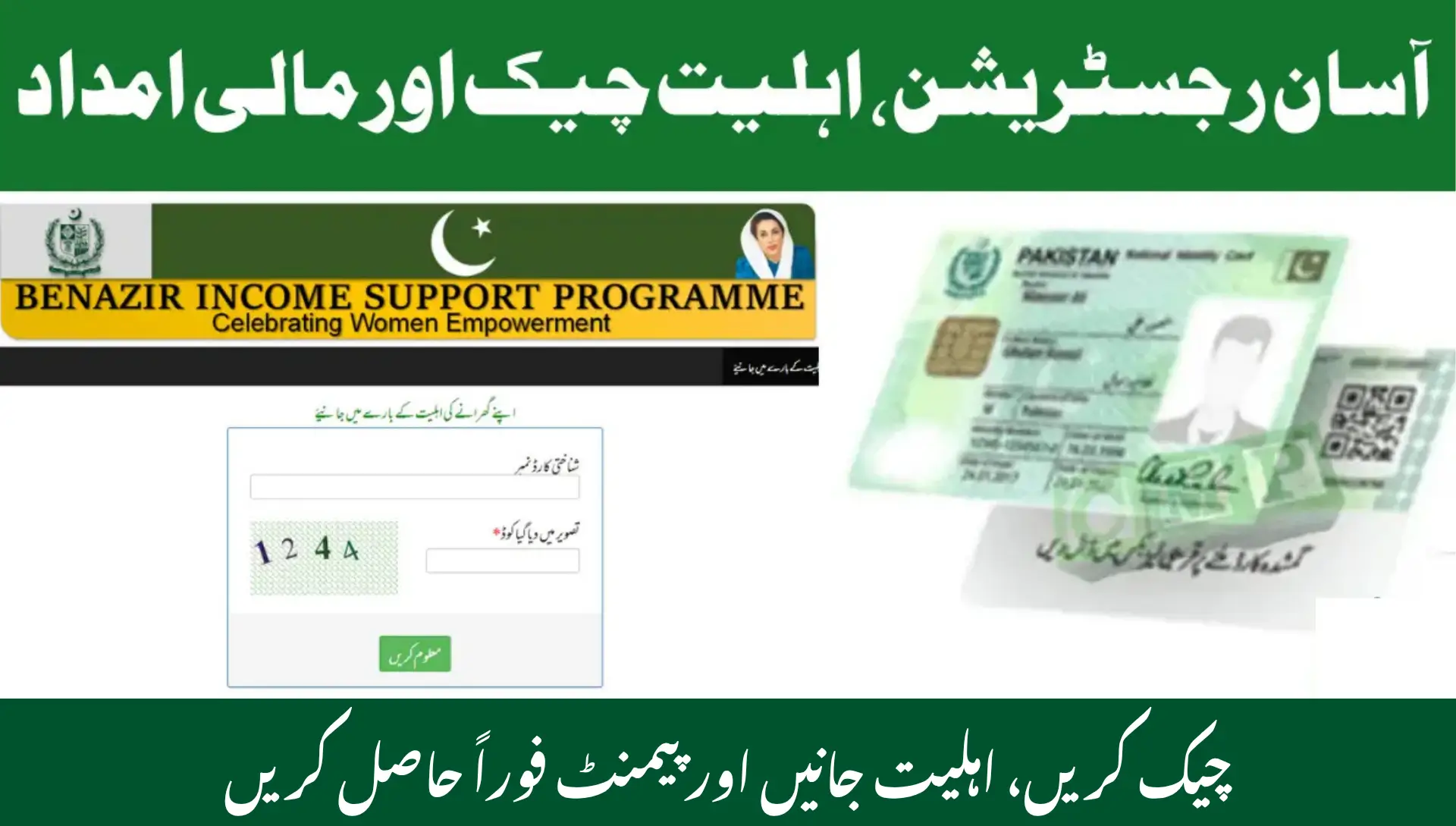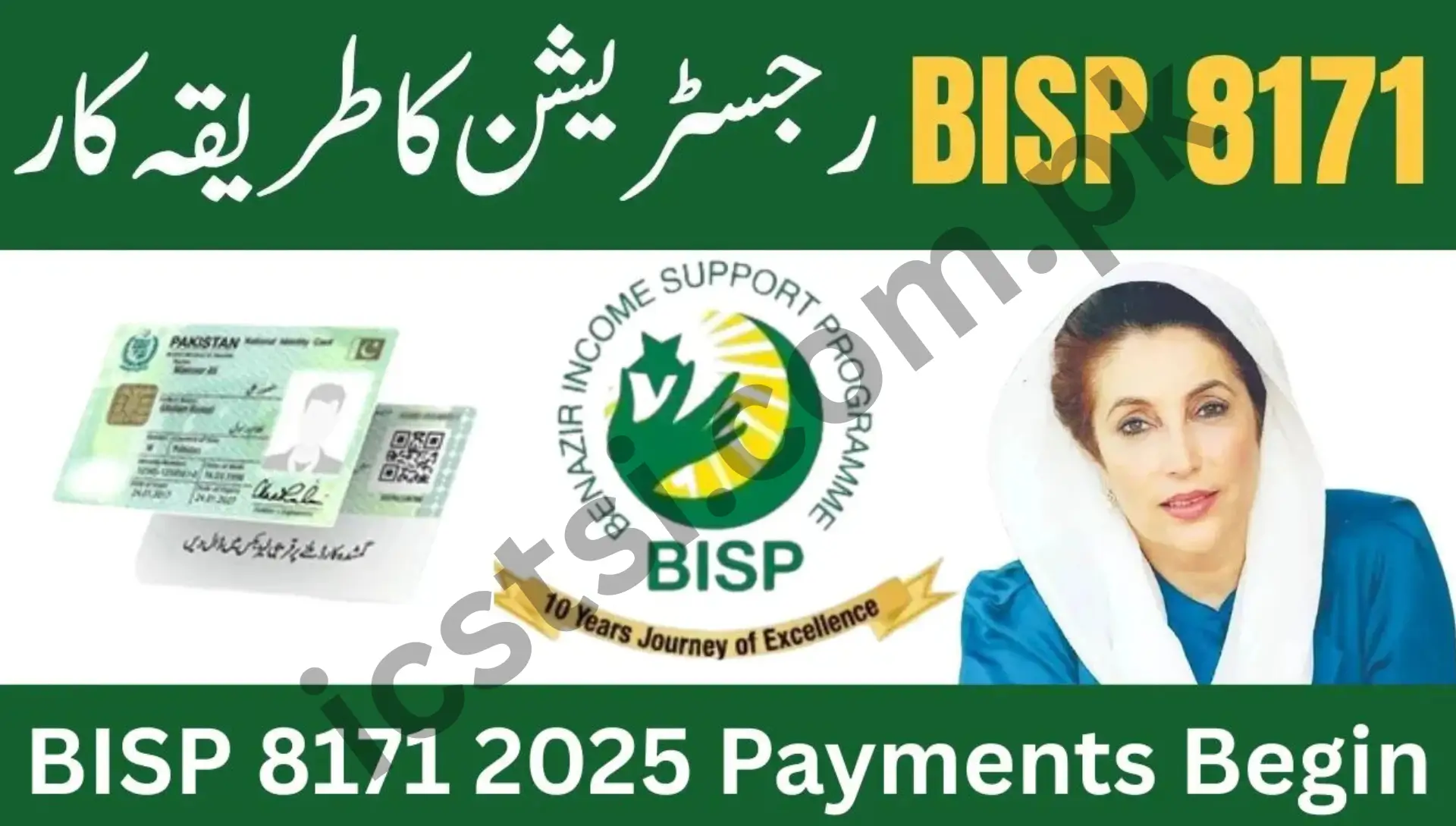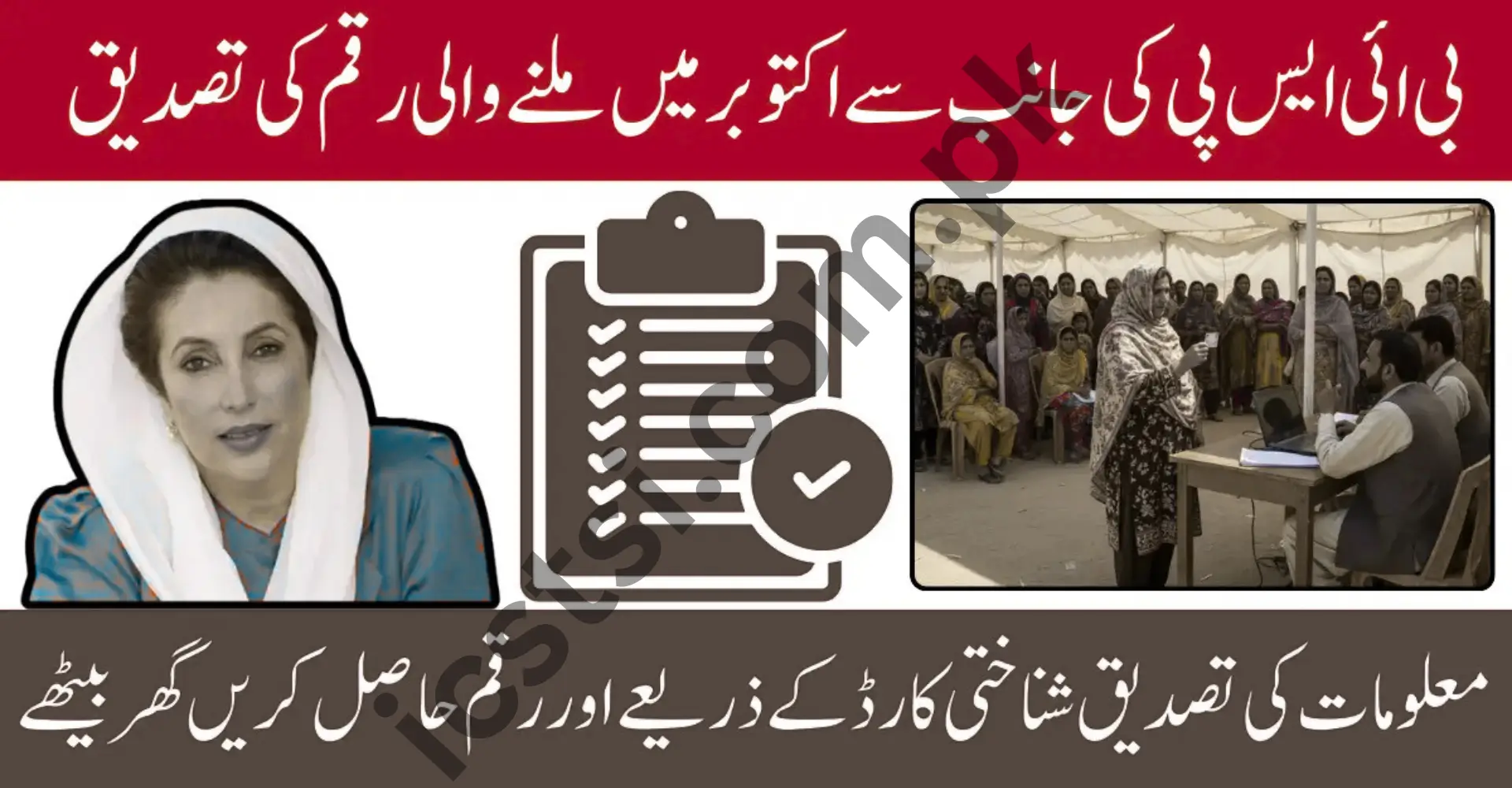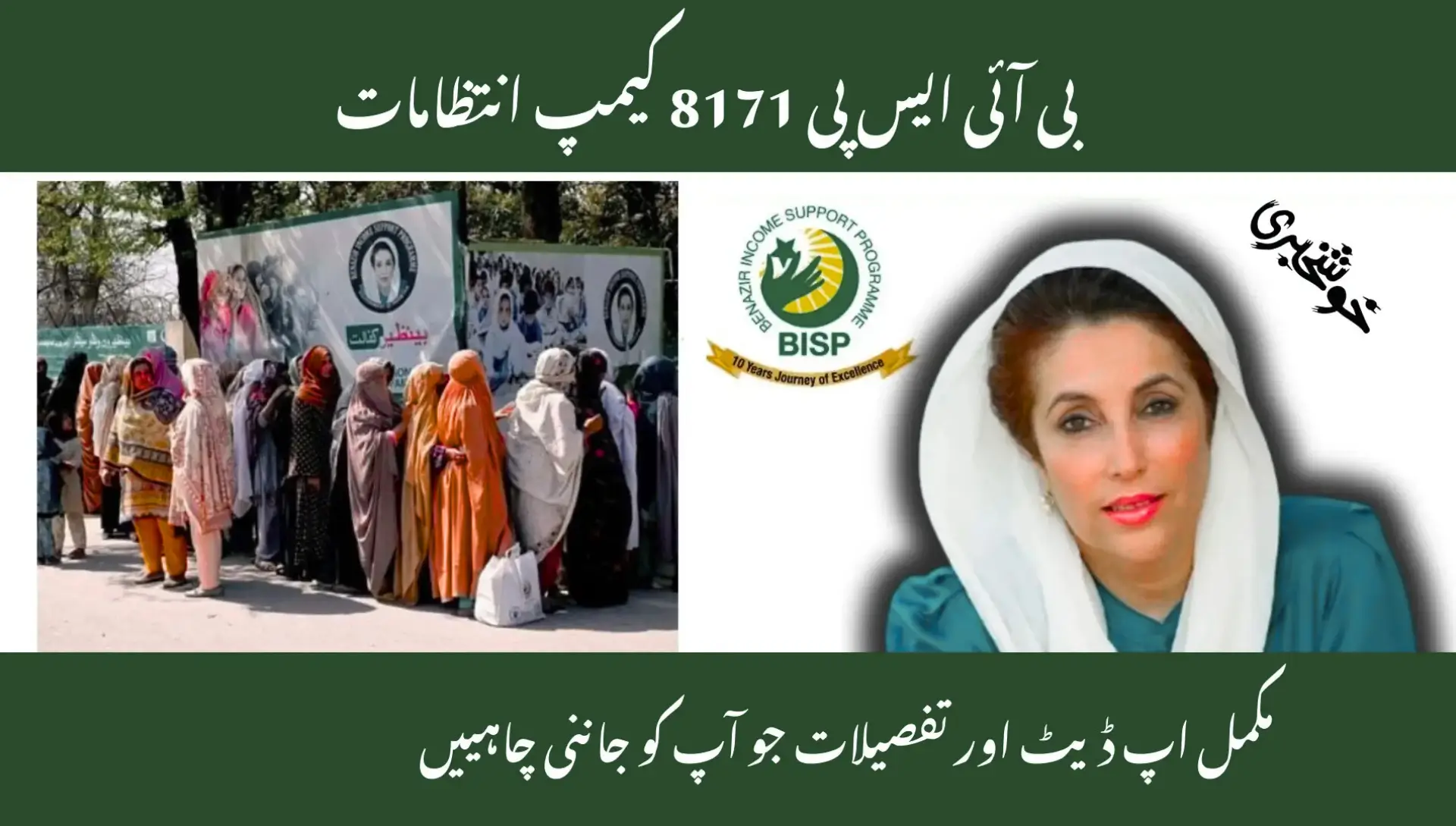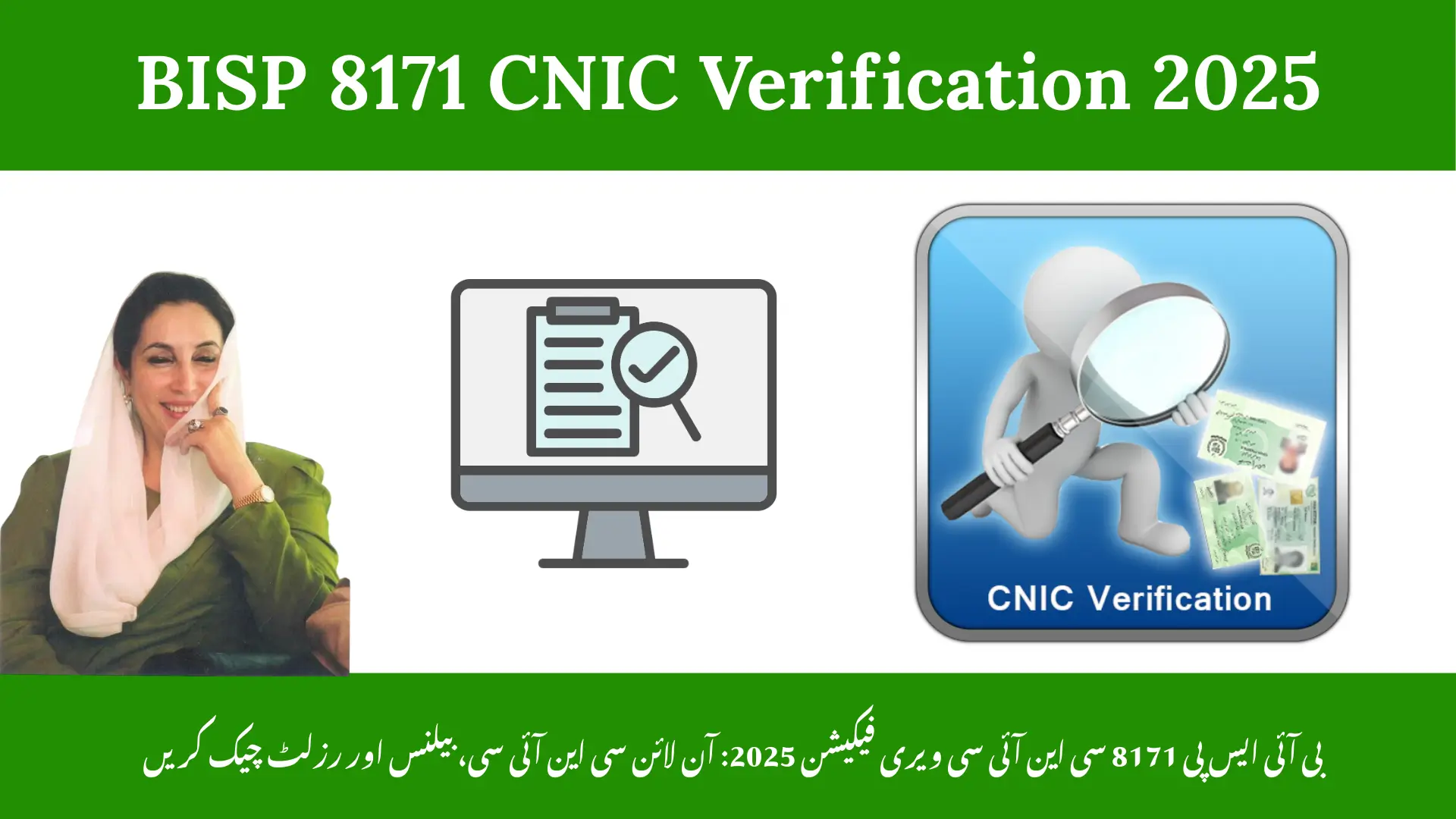Authentic Messages Come Only from 8171: BISP Chief Warns Public Against Fraud (2025 Update). The Benazir Income Support Programme (BISP) has once again alerted citizens about an alarming rise in fake SMS and online scams. According to Senator Rubina Khalid, authentic messages come only from the official BISP number 8171. Any text claiming to offer financial aid or cash assistance from another number is a fraudulent attempt.
This article explains how to verify real BISP messages, protect your data, and report scams in 2025.
Understanding BISP 8171 — The Only Official Source
The Benazir Income Support Programme (BISP) was created to support low-income families across Pakistan through monthly stipends and social protection initiatives. Over the years, scammers have tried to misuse its reputation through fake websites, SMS, and WhatsApp messages.
Why 8171 Matters
All official communication from BISP — including registration alerts, payment notifications, and eligibility updates — comes exclusively from 8171.
Any other number or platform claiming affiliation is unauthorized.
| Type of Message | Official Source | Scam Indicator |
|---|---|---|
| Eligibility/Registration updates | SMS from 8171 | Messages from random 10-digit numbers |
| Payment confirmation | 8171 or BISP Portal | Calls asking for bank details |
| Survey or data update | BISP survey teams (with ID cards) | WhatsApp or Facebook links |
| Complaint helpline | 0800-26477 | Personal mobile numbers |
Tip: Always check if the message sender ID is 8171 before responding or sharing any personal information.
BISP 2025 Anti-Fraud Warning Explained
Senator Rubina Khalid, the new BISP Chairperson, has made it clear that no third-party or agent is authorized to collect money or data from beneficiaries.
Below are the key highlights from her 2025 public warning.
1. Authentic Messages Only from 8171
Every verified communication regarding payments, registration, or eligibility is sent from 8171.
If you receive an SMS from any other number, do not click links or share CNIC information.
2. No Registration or Payment Fees
BISP never charges any amount for registration, NSER surveys, or card renewals.
Anyone demanding a fee is committing fraud. Beneficiaries should refuse payment and report immediately.
3. Beware of Fake Agents and Facebook Pages
Scammers are increasingly using social media and fake websites to trick people.
If a page or account claims to represent “BISP 25000”, “8171 New Scheme”, or “Benazir Support Fund”, it’s fake.
Example Scam Signs:
- “Congratulations! You’ve been selected for BISP 25,000 aid.”
- “Click here to claim your payment.”
- “Pay Rs. 500 for verification.”
Each of these is a classic fraud attempt.
Official Helplines and Reporting Channels
If you suspect fraud or have received fake messages, here’s how to report and verify safely:
| Purpose | Contact Method | Details |
|---|---|---|
| Verify message authenticity | SMS CNIC to 8171 | Official BISP verification system |
| Report scam/fraud | Call 0800-26477 | Free helpline for all provinces |
| Visit office | Nearest BISP Tehsil Office | Bring CNIC and any fake message evidence |
| File complaint online | bisp.gov.pk | Use official contact form |
Avoid typing your CNIC on Facebook posts or WhatsApp links — only use 8171 or the official BISP website.
Collaboration Against BISP-Related Scams
To combat the growing number of scams, BISP has partnered with two key agencies:
- Federal Investigation Agency (FIA) – Tracks and arrests cybercriminals involved in BISP name misuse.
- Pakistan Telecommunication Authority (PTA) – Blocks fake SIM cards, phishing websites, and numbers impersonating 8171.
These institutions are working together to ensure that the most vulnerable families women, widows, and the elderly are protected from digital fraud.
Common BISP Fraud Techniques to Watch For (2025 Update)
Scammers are becoming smarter with new tricks. Below are the most common fraud types identified by the FIA Cyber Wing and BISP Monitoring Unit:
1. Fake SMS from 11-Digit Numbers
You might receive a text like:
“Congratulations! You have received Rs. 25,000 from BISP. Send your CNIC for confirmation.”
Such messages are always fake. BISP only uses short code 8171.
2. Facebook or WhatsApp Messages
Fraud pages post ads such as “Apply for Benazir Kafalat 2025 – Get Rs. 20,000 instantly”.
These posts are click-bait scams designed to steal CNIC and mobile data.
3. Fake Survey Calls
Scammers pretend to be from BISP, asking for household details or CNIC numbers for “NSER update”.
No real BISP officer will ever call for such information.
4. Payment Deduction Scams
Some local agents charge “service fees” from beneficiaries while releasing stipends.
Payments are 100% free any deduction must be reported immediately.
How to Verify Genuine BISP Information
Always follow these steps before believing or sharing any BISP-related message:
Step 1: Verify the Sender
Only trust SMS from 8171. Ignore all other numbers.
Step 2: Confirm on BISP Website
Visit the official site: www.bisp.gov.pk
All current announcements, payment schedules, and eligibility updates are published there.
Step 3: Contact BISP Helpline
If you’re unsure about a message, call 0800-26477 to confirm its authenticity.
Step 4: Visit the Nearest Office
For any in-person support, head to your BISP Tehsil Office with your CNIC card.
Protecting Beneficiaries Through Awareness
BISP is conducting awareness drives through radio, TV, and SMS campaigns to educate citizens on how to identify real versus fake communications.
Key Awareness Messages
- “8171 is your only trusted source.”
- “Never pay anyone for registration or surveys.”
- “Report fraud to protect others.”
This initiative ensures transparency in Benazir Kafalat and other social protection programs under BISP Pakistan.
Public Response to Rubina Khalid’s Statement
Many citizens have appreciated Senator Rubina Khalid’s strong stance against scams. Beneficiaries expressed relief that the BISP is finally taking action through digital monitoring and joint cyber operations with FIA.
Her focus on digital verification, secure communication, and public awareness aligns with the government’s broader vision of Digital Pakistan 2025.
BISP 8171: Facts vs. Myths
| Myth | Reality |
|---|---|
| You must pay to register for BISP. | Registration is free via official BISP centers only. |
| Messages from WhatsApp or Facebook pages are real. | Only SMS from 8171 are official. |
| You can register online through third-party links. | Only NSER survey and 8171 portal are valid. |
| Agents are authorized to take your CNIC for registration. | Only verified BISP officers can collect data. |
Role of FIA and PTA in Digital Safety
Both agencies are using cyber-monitoring systems to trace scammers and fake domains.
FIA Cyber Crime Wing has already shut down multiple phishing websites pretending to offer “BISP 25,000 registration”.
PTA has blocked hundreds of SIM cards and URLs that spread false messages or use names like “BISP Online Form” or “8171 Scheme”.
Note: Reporting scams helps protect not only your family but thousands of other vulnerable citizens across Pakistan.
How to Stay Safe Online (Quick Tips)
- Never share CNIC or personal info over phone or social media.
- Always check the official BISP logo and domain before filling any form.
- Use verified helplines — not personal WhatsApp numbers.
- Keep screenshots of suspicious messages and report them.
- Educate family members — especially elders and women — about 8171 authenticity.
FAQs About BISP 8171 and Fake Messages
1. How can I confirm if a BISP message is real?
Check if it comes from 8171. Any other number is fake. You can also verify by sending your CNIC to 8171.
2. Does BISP ever ask for money or fees?
No. All registration and payments under BISP are completely free of charge.
3. What should I do if I receive a fake BISP message?
Report it immediately to the BISP helpline (0800-26477) or your nearest BISP office. You may also inform FIA Cyber Crime Wing.
4. Can I register for BISP online through any website?
Only through official BISP channels such as the 8171 portal or verified NSER survey team.
5. Is it safe to share CNIC or phone number on social media for BISP help?
Never. Scammers often use such posts to collect data for fraud.
Conclusion
The BISP 8171 message authenticity campaign is a vital step in protecting millions of beneficiaries from scammers. As Senator Rubina Khalid emphasizes, “If it’s not from 8171, it’s not from BISP.”
Stay alert, verify every message, and educate others around you.

